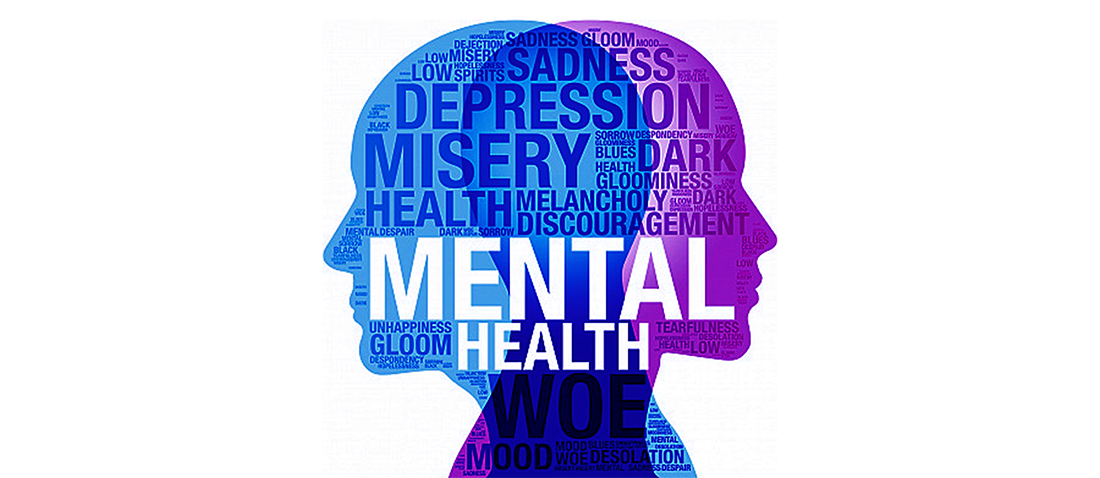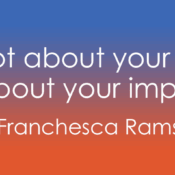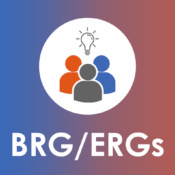
Breaking the Silence: Addressing Mental Health Barriers for Deaf Professionals
Mental health isn’t a sidebar topic for the Deaf community, it’s urgent, persistent, and embedded well under the surface. It's time for the systems we live in—work, healthcare, education, and more—to catch up and meet the needs of Deaf and hard of hearing individuals.
Growing Mental Health Disparities Demands Attention
Let’s set the stage with data. After all, we can’t measure impact unless we understand the dire current situation.
Ongoing research on ableism, audism, Deaf acculturation, and the sociological impacts of hearing privilege clearly demonstrates how embedded oppression directly impacts the mental well-being of Deaf and hard of hearing individuals.
A 2025 study using the “Deaf Oppression Scale” investigated how internalizing different forms of oppression affects the mental health of Deaf and hard of hearing individuals. This study found that internalized ableism significantly predicts symptoms of depression, anxiety, and chronic stress among Deaf participants. For context, internalized ableism is when a person with a disability internalizes society's negative beliefs, biases, and stereotypes about disability and applies them to themselves.
Internalized audism is a form of internalized ableism where a Deaf or hard of hearing individual internalizes societal prejudice against deafness and applies it to themselves. This can include the biased perception that those who are Deaf or hard of hearing are less capable than those with typical hearing. This may leave Deaf and hard of hearing individuals with poorer mental health and lower self esteem compared to hearing counterparts. And the worst part? The current system is not equipped to provide accessible experiences to address these concerns.
A 2025 mixed-methods study revealed 63% of Deaf adults surveyed had current mental health concerns — but only 31% were actually receiving treatment. Barriers cited included communication incompatibility, lack of culturally competent care, and concerns about confidentiality.
The Implications of Research
The proof is in the pudding. These are the daily truths for Deaf, DeafBlind, and hard of hearing individuals juggling emotional strain, workplace bias, and trying to exist in systems that don’t support them in entirety.
The research proves that systemic oppression, ableism, and audism affects the Deaf community from within. The flaws of a world built for the hearing exacerbates these internalized struggles exponentially. When people have to advocate for access to survive, the toll adds up.
At 2axend, we've termed this the Deaf, DeafBlind, and Hard of Hearing Tax, or #TheDDBHHTax. It represents the combined emotional and administrative labor required to constantly advocate for systems that should already be accessible, and to navigate a world that wasn't designed with us in mind.
Consider, for instance, how professional environments contribute to the mental health crisis. Mental health liabilities for Deaf and hard of hearing professionals are a daily reality in the workplace, often manifesting as exhaustion. This is particularly evident in meetings, where professionals are drained not just by the content, but by the strenuous effort required to access information due to ineffective communication and a lack of turn-taking protocols.
Poor interpreting support, unclear communication norms, and unavailable resources contribute to and exacerbate stress and poor work/life balance. The emotional labor to participate in everyday settings compounds over time. The result? Burnout, disengagement, and something else that’s harder to bounce back from: feeling unsupported and left out.
Innovative Approaches Showing Promise
The mental health crisis is prevalent and has already sparked action.
Leading organizations are stepping up with mental health literacy programs designed for employees. These helpful resources ensure Deaf and hard of hearing professionals are included from the very start.
For instance, some 2axend clients have improved their internal systems to provide access to these lifesaving resources through:
- Employee resource groups (ERGs/BRGs) aimed to connect the community at work
- Digital meeting spaces that are accessible via live captioning and/or interpreters
- Regular training for managers on accessibility and inclusion best practices
These examples shift culture and reinforce: "You don’t just belong. You’re seen. Your mental health needs are valid."
Imagine a world where mental health resources are fully accessible, one where communication never becomes a barrier to finding support. One where workplaces, schools, and hospitals have exceptional, qualified interpreters readily available and equipped to facilitate barrier-free communication.
We can all play a role in making this vision a tangible reality by advocating for barrier-free environments where everyone can thrive.
Interpreters Play A Key Role
We all have a role in addressing the mental health crisis. This includes interpreters as they play a pivotal role in shifting perspectives and breaking down barriers.
The presence of a skilled, culturally competent interpreter can dramatically reduce stress and isolation for Deaf and hard of hearing individuals. Access to clear communication during medical appointments, legal proceedings, workplace meetings, and counseling sessions fosters autonomy and trust - two essentials for positive mental health.
On the flip side, as I’ve emphasized numerous times in the past, inadequate or absent interpreting support can create serious risks. Miscommunication in healthcare or therapy can lead to misdiagnosis, poor treatment, or withdrawal from seeking help altogether. Even in everyday workplace settings, relying on unprepared or unqualified interpreters contributes to exhaustion, disengagement, and chronic stress.
The quality of interpretation matters as much as access itself. A qualified interpreter not only conveys words, but also captures tone, nuance, and cultural context. Done well, this builds confidence and connection. Done poorly, it leaves Deaf professionals feeling misunderstood, dismissed, and excluded.
This is why interpreters must be seen not simply as conduits of language, but as partners in equity. Their work directly impacts mental health outcomes by ensuring communication is accurate, respectful, and inclusive.
The Summit is Where Attention Becomes Action
As part of next week’s Interpreting for Deaf Professionals Summit, we will discuss how interpreters help mitigate the stressors that Deaf and hard of hearing professionals encounter in the workplace. After all, research shows there is a clear impact communication and accessibility gaps have on mental health.
If your organization has interpreters, make sure they join us on September 19–21 for discussions on:
- Addressing how interpreting dynamics can build - or break - workplace experiences
- Exploring how interpreters hold the key in opening doors for accessibility at work
- Leveling-up their skills to serve the professionals they serve
After all, accessing exceptional, qualified interpreters shouldn’t be optional. It’s a foundational element in fostering full inclusion both in and out of the workplace.
A Final Thought
September is Deaf Awareness Month, a time for action. Mental health equity is a must-have, not just a "nice-to-have," for the Deaf and hard of hearing community. It starts with awareness but is realized through building systems, accountability, and connection. It’s time to break the silence and prioritize mental health.



